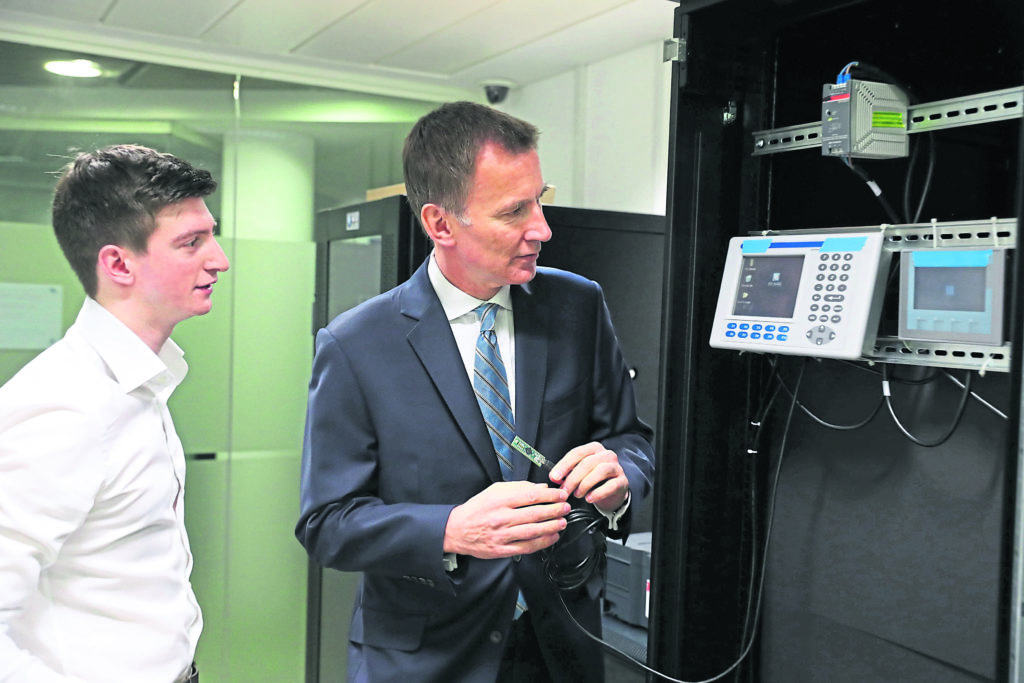
Jeremy Hunt insisted yesterday he is determined to deliver a Brexit that works for the oil and gas sector as he acknowledged the industry’s fears over EU withdrawal.
The foreign secretary said he was confident the North Sea sector had the “resilience” to withstand the economic shock of Brexit.
But he understood the offshore industry’s concerns over the potential for tariffs, the disruption to the supply chain and the impact on foreign workers.
His assurances were last night dismissed by the SNP, who claimed the Conservatives’ “obsession” with Brexit would be a “hammer blow” to the North Sea.
On the eve of a visit to Aberdeen, Mr Hunt said he would fight for a pro-business immigration policy that recognised the needs of the sector.
And he argued that the best way to avoid post Brexit tariffs was for MPs to back Theresa May’s deal, despite signs that it will be rejected once again when the Commons votes next week.
Mr Hunt said: “We are absolutely determined to deliver a pro-business Brexit. The oil and gas industry is absolutely essential to the British economy – 300,000 jobs, one third of which are in Scotland. Aberdeen is central to that.”
An industry report has suggested WTO-style tariffs could add £500 million to the sector’s annual EU trade bill. The prospect of more customs red-tape has led to fears that equipment imported from Europe will be delayed.
With EU nationals accounting for 5% of oil and gas workers in the UK, the industry is also anxious to protect its workforce.
On the question of tariffs, Mr Hunt said there would be “clarity” on the issue if Mrs May’s deal is backed by parliament on Tuesday.
He added: “If that passes through then we would be on track to have a completely tariff free trading relationship with the rest of Europe going forward.”
Speaking to the Press and Journal on a visit to Glasgow University, the foreign secretary said the UK Government would do “everything we can” to address concerns about equipment shortages.
“But I also do know that the oil and gas industry is totally international and used to importing and using equipment from all over the world,” he said. “So I am very confident in the resilience of that sector to deal with whatever situation we end up in the next few weeks.”
Mr Hunt argued that leaving the single market gave the chance to create a “pro-business immigration policy that fully recognises the needs of the oil and gas sector” and recruited internationally.
Today, the foreign secretary will meet leading industry figures at Aberdeen Harbour.
His visit coincides with HMRC figures showing exports of oil and gas to the EU are up 29% from £6.2 billion to £8 billion.
SNP Economy spokeswoman Kirsty Blackman MP said there was “no sign” Mrs May had considered the needs of the oil and gas sector.
“Westminster is incapable of delivering for Scotland’s oil and gas sector. Their obsession with Brexit would be a hammer blow to the sector and wider economy,” she said. “The north east would be among the regions hit worst by a Tory Brexit.”
Gareth Wynn, of UK Oil and Gas, said the industry was emerging from one the “toughest downturns” in its history and it was critical to support the sector’s hundreds of thousands of jobs.
“The certainty and stability of a deal outcome is in the interests of our industry to help safeguard the value and potential of the UK’s offshore oil and gas industry,” he said.
Recommended for you
